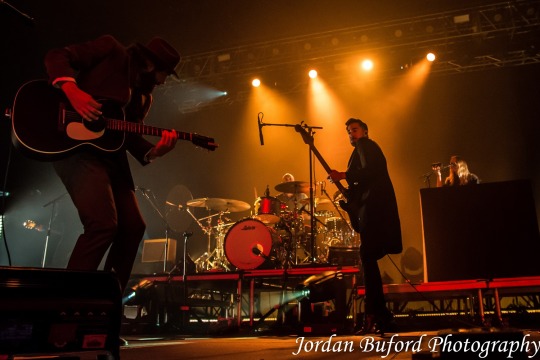#they are the most compelling dynamic in the entire world anne put something different in their relationship
Text
the thing about lestat and armand is that their relationship is literally incomprehensible. they are boy best friends they are codependent worsties they are archrivals they are platonic soulmates they are telepathic gossipers they are part time haters and full time ride or dies they are insane bisexuals but most importantly. they are toxic exes. despite the fact that they have never once dated. hope this helps
#they are the most compelling dynamic in the entire world anne put something different in their relationship#like god. they love each other so much but they can’t have a normal conversation about it. they just show up when the other is in trouble#neither of them has another relationship quite like the one they have with each other#I’m genuinely experiencing previously undiscovered emotions over them#single-handedly fueling my own lesmand boy best friends fic agenda#iwtv#interview with the vampire#the vampire chronicles#the vampire armand#lestat de lioncourt#lesmand#m watches iwtv
2K notes
·
View notes
Text
More PQ2 liveblog thoughts–this time with no salt!
Ryuji acknowledging that what Kamoshida did wasn’t just physical abuse, and that what he put Ann through was even worse than that, was really refreshing to see, especially since the base game did very little to actually show Ryuji understand and acknowledge and care about Ann’s feelings and what she suffered. Any hope of development he had once Kamoshida was apprehended just went out the window, so kudos, PQ2.
Akechi telling Ryuji and Ann, who are particularly vocal about how much they hate Kamoshida (with good reason!) that he understands how they feel is…. painful. Very painful. Especially since what set them off is how absurd it is to think of a whole city built around the idea that Kamoshida is a hero. Of course Akechi would understand how that feels: the entire country of Japan thinks his piece of shit father is a good man.
I painted a tile red by accident, and Ann chimed in by saying it was a nice color. Of COURSE she’d like the color red. ;_;
I can’t believe I forgot this, but the contrast of Akechi having Bless/Light skills, and Joker having Curse/Dark? I love it. I love it a LOT. To me this is the most clear sign that Akechi really did have the capacity for goodness in him, that if he hadn’t been mistreated and deprived, he’d be the true hero his childhood self clearly wished he could be (see also: Robin Hood). And with that line of thinking, I find it equally fascinating that Ren’s innate talent is Curse/Dark.
I don’t pay much attention to the P5 fandom, but from what little I’ve glimpsed, people seem to have this misconception that Ren is some uwu cinnamon roll, when this is so damn far from the truth I really wonder if these people like,,, actually,,, paid attention to the game they were playing. Ren’s ultimate persona is Satanael. It shoots the Demiurge in the fucking face. His whole shtick is a gentleman rebel intent on purging corruption and impurity from society, and he does this while being affiliated with Dark himself. I think a lot of people, even some Akeshu shippers, may overlook Ren’s own capacity for darkness and controlled viciousness in the name of justice. People who evade the law must be dragged screaming back to the rule of law. There’s a reason why his dynamic with Akechi is as compelling as it is, and it’s because they are absolute equals, cordial rivals with similar powers, motivations, and yes, even inclinations.
I’m just saying, if people are able to see Akechi’s potential for being different/better than what he was, then the same can be said for Ren in the reverse. And by some accounts he really is quite questionable, though I’ve previously discussed the moral ambiguity of forcing a conscience onto the minds/hearts of people instead of allowing them to go to it willingly. Personally I stand with Akechi on the matter–FORCING change on someone, no matter how corrupt they are, is a problem unto itself. But I also agree with Akechi in that some people are so corrupt they just need a good killin’ though, so… y'know. Grain of salt and all.
All-Out Attacks in this are ALSO adorable. God I’m enjoying the look/style of this so much more than I did Q1, weirdly enough.
Boy I did not in any way at all miss Justine and… what’s the other one. Christine? Something? Oh no, it’s Caroline. Whatever. I didn’t miss them, and they are by far the lamest of the Velvet Room attendants. Anyone have any ideas as to why Ren’s VR attendants would be children? Because as far as I know in the other games, except for 2, the VR attendants were some reflection of the Wild Card user themselves. The VR attendant was either someone who would be their peer, someone they could learn from, or, with Yu and Margaret, a guiding figure, stern but helpful. And then Marie showed up so… whatever, I guess. I guess Yu learned how to listen to terrible poetry from a tsundere goth or something? Not sure.
I haven’t quite figured out how/why Justine and Caroline–and then Lavenza–can in any way relate to Ren, and part of me wants to say they were actually meant to be Akechi’s VR attendants if he were a true Wild Card user. Children with two different personalities with a strong sense of justice that doesn’t yield no matter what? That fits Akechi quite well. Those attendants then merging into a gentle but determined, soft-spoken girl who only wishes to find the truth and reveal it? That fits Akechi too. It reflects a gentleness/softness, a purity that he lost too soon.
When I put it that way, I can kinda see how they would fit with Ren, who is also seeking the truth because of his muddled memories (which is so convoluted, oh my god, don’t get me started), but they make so much more sense if I think of them as leftovers that were meant to go to Akechi first. But since Akechi isn’t a Wild Card user…. womp womp.
Mona’s outburst that Ryuji should respect Justine and Caroline, then backpedaling to say no, he doesn’t know them, but [respecting them] “just feels right” is………….. really interesting. He says they have something “unwavering” within them, and when they look at him, he gets the feeling he just has to listen to them–“there’s something deep in my core, this feeling that screams ‘I have to do what they say!’ wells up inside me.” IN TER EST ING.
And FINALLY your whole crew can join you in the Velvet Room! Takes me back to P2 days.
Akechi: “Still, two Personas at the same time? I’m impressed. My hat’s off to you, Ren.” FDJSKLFDSLK AKECHI YOU BRILLIANT MOTHERFUCKER
!!!
AND NOW MY BUDDIES CAN HAVE MULTIPLE PERSONA
FUCK YEAH FUN TIME
And Justine/Caroline speculate that the power of the Wild Card is changing to adapt, since “another with the power of the wild card is here as well.” I’m guessing that refers to the P3 or P4 protag?
After playing other JRPGs, I realized something about the Persona series that stands out and that I really enjoy: how talkative your teammates are. They encourage you, cheer you on, compliment you for an attack, express fear if you’re hurt; they thank you for the help you give them, they comment on how much health or SP they lose–it all feels that much more engaging and exciting. Plus it’s a small but really special way to show off their personalities and just how they work together as a team.
OH
MY
GOD
MY GAL MINAKO MAKING THE BEST FUCKING ENTRANCE
THAT’S MY GAL DSJKLAFJSDKL
LET ME PUT HER IN MY PARTY DFJSKLFDaaa
AND THE BATTLE MUSIC CHANGES TO P3-STYLED MUSIC WHEN SHE’S HERE JKFDSAJKLFSDAJFLSDJFKLSD OH MY GOD I WANT TO CRY
This is the kinda fanservice I live for, idc. The kind of fanservice that is fun and harmless, that just makes the story exciting. Because who doesn’t love a good crossover?
Oh my god hearing the P3 music again makes me want to tear up. Y'all don’t know how special P3 is to me ;_; It means so… so so so much. And seeing her again, and hearing this music, just fills my heart with so much painjoy that I want to cry.
I GET TO NAME HER? DFJSLAKFDSKL I JUST BURST INTO TEARS. I KNOW THIS IS RIDICULOUS BTIA FKJDSL SHE’S JSUT SO SPECIAL AND!! ATLUS IS FINALLY ACKNOWLEDGING HER!!!a
As a side note, I’m really touched to see Akechi interacting with others that aren’t in the PT. He is genuinely kind to them–a pleasant boy indeed.
“I watch the news pretty regularly, too.” Considering how many times you can check the TV in the dorm in P3, and that SEES would keep an eye on the Apathy Syndrome cases, she’s not lying. Good on Atlus for putting that in there.
Watching Minako bond with Futaba over headphones, and be so kind and friendly, just… warms my heart. THAT’S the P3 protag I know and love.
//THE POPCORN MAKER IS A TRANSPOSITION KILN, LIKE FROM DARK SOULS 3 FADSJKLFDS//
THIS IS THE GREATEST GAME EVER MADE
Justine and Caroline confirm that the other Wild Card user they sensed was Minako, which I suppose makes it canon (sorta?) that Akechi is not a Wild Card user, and that his two Persona are likely a special case, caused by the severe split in his motives and in his heart thanks to Shido.
Persona fusion in this is really cute! Justine and Caroline slowly merge the film, do a dance, and butterfly wings sprout from their backs!
“But nothing’s certain in this world, and this problem isn’t going to solve itself.” I FUCKING LOVE YOU, MINAKO.
Watching Futaba struggle but still go through with trying to reach out to Hikari, to explain how difficult it was for her to socialize and share her time with others, also makes me look at P5 in a nicer light. I really did think Futaba had one of the better S-Links, it’s just that pedophilia bullshit that was a GIANT RED FLAG distracting me from the rest of it. If her S-Link had something like this instead–Futaba finds a girl who is like her, and wants to help her since she understands exactly how she feels, but she wants Ren’s help/advice with it–I would have been much happier.
YOU
CAN
PUT
MINAKO
IN
YOUR
PARTY
OH MY GODDDDDDDDDDDDDDDDDDDDDDDDDDDDDDD
Her Japanese voice is adorable by the way–so bright and friendly and warm.
8 notes
·
View notes
Text
downcast loophole
‘Men rarely like such of their fellows as read their inward nature too clearly and truly. It is good for women, especially, to be endowed with a soft blindness; to have mild, dim eyes, that never penetrate below the surface of things—that take all for what it seems. Thousands, knowing this, keep their eyelids drooped on system; but the most downcast glance has its loophole, through which it can, on occasion, take its sentinel-survey of life…’
Shirley is an odd book. It is probably Charlotte Brontë’s least popular novel now, sandwiched as it is between those masterpieces Jane Eyre and Villette. It is over-ambitious, overlong (some six hundred single-spaced pages) and maddeningly overwrought. It is frequently tedious, alternately stilted and hectoring. But there’s still a great deal of interest to be found here.
The book is the result of an attempt to write a politically charged state of the nation novel. It’s set during the Napoleonic wars (almost forty years before it was written) and it follows Robert Moore, a mill owner in Yorkshire. Moore is deeply unpopular amongst the locals for sacking too many of them; partly as a result of the hard economic realities of the period, and partly because he’s been investing in replacing them with machines. It hardly helps that Moore and his sister are immigrants themselves. Much of the drama in the early part of the book comes from the violent confrontations between Moore and the local proletariat; all this comes in the context of the threat of Napoleon in Europe and Jacobin uprisings at home.
But if this is the central drama of the book, it is perhaps only granted a quarter (if that) of the book’s weight in prose. The rest follows Caroline Helstone, the young niece of a local clergyman, who comes to take lessons at Robert’s house. She is in love with him in a lonely, heartsick sort of way, and on top of everything, Caroline is hopelessly bored, frustrated and depressed by her situation. At one point she even suggests becoming a governess if only to leave town. All this until Shirley Keeldar comes to town. Shirley is young, single, and extremely bright; she has also inherited a lot of money, which is exactly what Robert needs to potentially revive his fortunes.
But Robert himself, and all those problems with the mill and his workforce, soon fade into the background. The dynamic between Caroline and Shirley carries much of the interest of the book. At times the two of them seem strangely indivisible, like two sides of the same brain. Caroline is introverted and solitary, whereas Shirley is confident and headstrong, and is entirely unafraid to flaunt her wits and intelligence before those who cross her. Shirley won’t be placated, and she won’t accept second-best; whereas perhaps Caroline is too eager to do both of those things. Despite these differences, they possess a deeper familiarity. In conversation they seem to finish one another’s thoughts. And for a while it seems they might be both in love with the same man.
After a while the book settles almost exclusively on describing Caroline’s psychological state and her relationship with Shirley, with occasional diversions into Moore’s world. It’s not so much that the author has little to say on the politics of the time, so much as that what she does say can be summed up in frequent, contemptuous broadsides. It is often a furious book. No social institution escapes unscathed: religion, capitalists and the government alike are all valid targets for the author’s ire.
But the most compelling passages here are where Brontë seems to lose patience entirely with the drift of her own narrative. Above all, it is Charlotte’s situation of isolation — partly self-imposed, but mostly imposed upon her — that prompts writing like this:
‘A lover masculine so disappointed can speak and urge explanation, a lover feminine can say nothing; if she did, the result would be shame and anguish, inward remorse for self-treachery. …Take the matter as you find it: ask no questions, utter no remonstrances; it is your best wisdom. You expected bread, and you have got a stone: break your teeth on it, and don't shriek because the nerves are martyrized; do not doubt that your mental stomach—if you have such a thing—is strong as an ostrich's; the stone will digest. You held out your hand for an egg, and fate put into it a scorpion. Show no consternation: close your fingers firmly upon the gift; let it sting through your palm. Never mind; in time, after your hand and arm have swelled and quivered long with torture, the squeezed scorpion will die, and you will have learned the great lesson how to endure without a sob. For the whole remnant of your life, if you survive the test—some, it is said, die under it—you will be stronger, wiser, less sensitive…’
This is bleak stuff, stark almost to the point of self-parody. Like much of the style here it stumbles on a brilliant image before almost spoiling it with excessive mannerisms. But it has a shocking immediacy that isn’t often associated in fiction with what is a essentially just a description of inaction. Nothing is actually happening here: there is no development of character or plot, nor is there any action. Yet you can feel the anger bleeding off the page.
Shirley is also a novel haunted by loss. Charlotte’s brother Branwell and both of her sisters, Emily and Anne, died while she was writing this book. It’s been said that the character of Shirley was inspired by Emily, though I don’t know how much truth there is in this. But the whole thing is shot through with the nearness of death.
Here is a moment where the narrator pauses in the flow of the book, pulling out of the story entirely, to give us a glimpse of the world outside their window:
‘This is an autumn evening, wet and wild. There is only one cloud in the sky, but it curtains it from pole to pole. The wind cannot rest; it hurries sobbing over hills of sullen outline, colourless with twilight and mist. Rain has beat all day on that church tower. It rises dark from the stony enclosure of its graveyard. The nettles, the long grass, and the tombs all drip with wet. This evening reminds me too forcibly of another evening some years ago—a howling, rainy autumn evening too—when certain who had that day performed a pilgrimage to a grave new-made in a heretic cemetery sat near a wood fire on the hearth of a foreign dwelling. They were merry and social, but they each knew that a gap, never to be filled, had been made in their circle. They knew they had lost something whose absence could never be quite atoned for so long as they lived; and they knew that heavy falling rain was soaking into the wet earth which covered their lost darling, and that the sad, sighing gale was mourning above her buried head.’
My edition marks a break in the volumes of the text as the point at which it is thought Charlotte picked up her pen again, after those bereavements. It is marked by a set of strange plot decisions. Caroline is taken ill, and for no apparent reason Shirley’s old governess is suddenly revealed to be Caroline’s birth mother. Another handful of characters are introduced, including Robert's handsome and conveniently unmarried brother Louis. The tone of the book changes entirely. Suddenly it becomes less gothic and more like a romance; suddenly we are skimming over pages of flirtatious repartee.
All of which lends itself towards a happier ending than the reader might have initially supposed. But none of that really matters. The plot here is, I think, mostly froth: that idea of a state of the nation novel never seems to have held the author’s attention. The real object of interest here is the mindset of the individual — in particular, the independent woman of means — and how she must find her place in a society which has no room to meet her on her own terms.
6 notes
·
View notes
Text
Friday, September 28th, 2018 - Lord Huron Entertains a Near Capacity Crowd at Dallas’ The Bomb Factory with a Career Spanning Set

Photos by Jordan Buford Photography
After an appearance at a festival back in the spring Lord Huron was finally getting to Dallas for a proper showing of material from their most ambitious work to date.
Vide Noir (out via Republic Records) is an utterly compelling listen that so interestingly deals with the most crucial aspects of life, even playing out as a concept record of sorts. It’s an album teeming with tracks about undying love and the haunting pain that arises from being left alone. A broader message noticeable throughout the songs is one of living and ultimately even struggling to accept one’s own mortality as it consistently addresses the notion of belonging and seeking one’s place in the world – and reckoning with how that might be just a small piece to the larger world that exists around you.
Apart from that, it finds the group led by Ben Schneider branching out more than ever, the indie folk stylings that were so dominate on their previous two releases often still present and always an underlying factor, though just as prevalent is a more gritty rock sound, one that makes the rhythm section a crucial component. It highlights some different dynamics that the musicians still excel at and has even resulted in some of the most spirited material from Lord Huron to date.
All of that just seemed as if it would be ideal for and even translate perfectly into the live show, being conducive of an enthralling an energetic performance; and the loyal Lord Huron fans from around North Texas packed into The Bomb Factory, eager to see just what Schneider and company had in store for them.

Capable of holding a few thousand patrons, the venue was largely full as the lone support act, Cut Worms, finished up their set a little before nine. Not long after it was nothing but a sea of people, The Bomb Factory pushing capacity as the spectators huddled together, all looking for the best vantage point they could get. The turnout was kind of staggering considering just a few years ago Lord Huron was still playing fairly intimate venues, and it was a testament to their relentless touring schedule, building their fan base from the ground up, winning over new fans at every stop along the way.
Much like Vide Noir, this show was all about cultivating an atmosphere; the emerald design that adorns the cover art of the record hung at the back of the stage – appearing spiritual in a sense, as if designating a place to worship -- and it would be illuminated by a variety of colors throughout the night.
To begin, the stage was bathed in rich green hues as the sextet filed out on stage at 9:21, drummer Mark Barry promptly launching them into “Ancient Names, Pt. I”. It was a magnificent opener, quickly establishing the vim and vigor that would be a constant throughout the night. During the instrumental stretch Schneider broke free from the microphone and proceeded to move about, somewhat galloping, somewhat gliding as he trekked from one side of the stage to the other and back again. The entire band looked dapper, and at one point the singer and acoustic guitarist even removed his hat, as if he was silently making a formal introduction to everyone.

That one set the pace. Right away it was apparent the band would be giving nothing less than their absolute best, the driving intensity that makes “Ancient Names, Pt. I” so enthralling ensuring the concertgoers were invested in what they were seeing, and those feelings would only be bolstered by the barrage of fan favorites that were to follow.
The first handful of songs that Lord Huron did flowed gorgeously into one another, weaving a wonderful tapestry as they knocked out “Meet Me in the Woods” – which was as intoxicating as it was dynamic – and then they fully hit their stride with “The World Ender”. Miguel Briseño was a live wire during that tale of vengeance, demonstrating a mastery over his bass as he roamed about, jamming in front of the drum riser with Barry and guitarist Brandon Walters, and soon after highlighted the chemistry he and Schneider share as the two pushed themselves to the limits, feeding off each other’s excitement to achieve it.

Some of those older numbers seemed to have been retooled slightly, a ton of gusto being squeezed in to “Dead Man's Hand”, particularly near the end as Schneider belted out one line in an impassioned manner, then thrashed about with enough force that he inadvertently flung his hat off his head.
“Thanks for being here…” he remarked just a bit later in the evening, looking a bit in awe as he gazed out at the throng of fans that had turned out, his appreciation sincere.
It was as if the set had been constructed with the fans fully in mind, each song eliciting more elation from everyone. That was especially true of the first song of the night that came from Lord Huron’s debut LP, “Ends of the Earth” pleasantly surprising everyone when it was announced. The gentle, folky vibes eventually gave way to an epic crescendo that hammered home the full extent of the adventurous spirit that radiates from the story that unfolds, cementing that one was a highlight of the night.

Despite the differences between their first two albums and their newest one, it was incredible how all of this material from Lord Huron fit together. Thus far, in some sense, every song felt as if it were telling a snippet of a larger story, managing to stay coherent at that; those older songs still possessing the same charm that made people love them so in the first place, though there was also a new spark to them that brought them more in line with what Lord Huron has evolved into. It was interesting to see how those two worlds were colliding, even meshing together, and it added another level of enjoyment to the performance.
As lively as they were for the majority of the night, there were some more tranquil moments. “Wait by the River” was certainly one of those, Schneider setting his guitar aside, assuming more of a frontman role for that number. Splicing together elements of music from the ‘40s and ‘50s, it was behooving for the slow tempo of that song; and fitting in line with the message of atonement and seeking a second chance, Schneider clutched his hat close to his chest as he sang, bolstering the passion of it. The desperation was palpable as he portrayed himself as a forlorn lover longing for what he considered to be his other half, and that was what made it one of the most gripping pieces of their performance.

That was the lull for the night, with the back half (and then some) of Lord Huron’s set finding the musicians digging deeper than any point before. Somehow, they even made it look as if everything up to that point had been a warm up, and now they were ready to fully cut loose.
From electrifying tracks that thrilled the listener (i.e. “Hurricane (Johnnie's Theme)”) to being instigated to clap along to the beat, the audience was completely taken by the spectacle that was playing out in front of their eyes. Schneider’s charismatic charms seeped out of him, the singer making himself more riveting by waving his hands about and motioning with them, that relatively simple gesture adding significantly to the emotional depth of the stories being shared.
Sitting off alone on stage left was a theremin, Briseño finally putting it to use for an extended intro into “Way Out There”. The somewhat dramatic ebb and flow highlighted the intricacies of their talents; Tom Renaud demonstrating a solid mix of confidence and swagger as he picked at his axe, a smile occasionally creeping across his face, confirming the joy he was deriving from the experience.

Some of that transitioned over into “When the Night Is Over”, Schneider being meticulous as he plucked the strings of his acoustic guitar during that lush, even ethereal piece. The recording is excellent, though live it felt almost otherworldly as the atmospheric tones fully enveloped you and whisked you away.
“La Belle Fleur Sauvage” came to a rather fitting conclusion, a few bouquets of flowers being tossed out at the patrons. Sure, it went with the song, though it also felt like a thank you from the band, further expressing their gratitude to every soul who had shown up; and just when it seemed that they had peaked, breaking into an all-out blitz for the penultimate song of the night, they busted out the ultimate bookend for the show: “Ancient Names, Pt. II”. Structured like a blistering garage rock track and laced with some of the venom found in punk rock it stands as one of the most distinct entries in Lord Huron’s catalog, though that’s not to suggest it’s out of place for them. Quite the contrary, during those final minutes they looked more in the zone than ever – which is saying something – and concluded their 87-minute long set in jaw dropping fashion.

An encore was imminent, everyone knew it, though they weren’t expecting it to be as stunning as it was.
After a few minutes Schneider, Barry, Briseño, Renaud, Walters and keyboardist Anne Williamson were back on stage for some of their most revered hits. By all accounts they were done after those two additional ones, a smashing finale suggesting as much.
“We’re up for more if you are, just tell us now,” Schneider remarked… at least once he got the sound guy’s attention and had the microphone turned back on. Assuming the show was over, some people had already began heading for the doors, though the abrupt comment made them pause and shift their attention back towards the stage.

“Some nights you just want to keep going, you know?” he added.
In an age where encores have become expected and built in to the show, this was refreshing. It was genuinely spur of the moment, a last-minute judgment call being made to extend the set a little, North Texas fans getting an extra treat tacked on to what had already been an unforgettable night. And luckily it did work out that way, as the triumphant “We Went Wild” capped things off perfectly. Cheery and upbeat, it ensured everyone left with a smile on their face as Lord Huron continued to amaze them.

This wasn’t just a show. Far from it. Lord Huron worked tirelessly to make this into a legitimate experience, even something of a religious one. There was an ambiance to it, one that engulfed the onlooker and helped push all of the worries of the world outside away so they could get absolutely lost in the moment.
There was something spiritual to it, the way the lights shimmered and danced around, the shadows being pierced by traces of light. Those aspects were just as entrancing as the commanding stage show. And on that note, Schneider and his band mates transcended the standard roles, not being mere performers but showmen (and woman in Williamson’s case).
They weren’t there to just play some songs with the hope that people have a good time. No, they were there to forge a connection with everyone and show them how important this music is to them and have it resonate just as loudly with everyone who had come out. Their sheer conviction was paramount in them accomplishing that; and at least one of those songs surely spoke to the soul of an individual there.

Impeccable from start to finish, Lord Huron further made the case that they are one of the best bands currently out there. Their latest batch of songs may be a bit out of their previously established comfort zone, though it still sounds like them. The more prominent rock qualities fit them well without compromising that folk style that has been central to the group, all of it highlighting the versatile set of pipes that Schneider possesses. He’s a rare figure, a crooner who fits with the modern era yet also evokes similarities to those of decades past, portraying himself as an old soul, something his manner of storytelling further perpetuates.
In watching them this night, one couldn’t help but think that Lord Huron is surely an arena act in the making. The caliber of performance – how finely rehearsed they were, mixed with a raw, even primal drive – was certainly on par with what one would expect from an arena sized band. Their work ethic is commendable and the presentation was spot on; and it doesn’t seem too farfetched to think that in a few more years they’ll be filling up places four to five times the size of The Bomb Factory.
But for the time being, it’s all about Vide Noir and pushing that masterpiece. Their current U.S. tour supporting it will run through October 14th when they perform at the Treasure Island Music Festival in Oakland, CA. They’ll also be making an appearance at the Catskills Food & Wine Festival in Bloomingburg, NY on October 7th; and have a two-night stand planned in Denver, CO at the Ogden Theatre on October 4th and 5th. Afterwards, they’ll head over to Europe and the U.K. for a few weeks.
Their complete listing of tour dates can be found HERE; and be sure to pick up Vide Noir in iTUNES or GOOGLE PLAY if you haven’t done so already.
Set List:
1) “Ancient Names, Pt. I”
2) “Meet Me in the Woods”
3) “The World Ender”
4) “Dead Man's Hand”
5) “Back from the Edge”
6) “Ends of the Earth”
7) “I Will Be Back One Day”
8) “The Ghost on the Shore”
9) “She Lit a Fire”
10) “Wait by the River”
11) “Hurricane (Johnnie's Theme)”
12) “Never Ever”13) “Secret of Life”
14) “Way Out There”
15) “When the Night Is Over”
16) “Frozen Pines”
17) “La Belle Fleur Sauvage”
18) “Fool for Love”
19) “Ancient Names, Pt. II”
Encore:
20) “The Night We Met”
21) “Time to Run”
22) “We Went Wild”








#Lord Huron#Lord Huron 2018#Lord Huron Dallas#Lord Huron The Music Enthusiast#Lord Huron Jordan Buford Photography#Lord Huron Review#Lord Huron Live Review#Lord Huron Show Review#Lord Huron Concert Review#The Music Enthusiast#2018#Dallas#Texas#Deep Ellum#The Bomb Factory#Dallas Music Blog#Texas Music Blog#Jordan Buford Photography#Ben Schneider#Mark Barry#Miguel Briseño#Tom Renaud#Brandon Walters#Anne Williamson#Review#Concert Review#Music Enthusiast#DFW#Vide Noir#Vide Noir Tour
0 notes
Text
Jessica Jones Season 2 Deep-Dive: Why Marvel-Netflix's Best Show Suffers
New Post has been published on http://secondcovers.com/jessica-jones-season-2-deep-dive-why-marvel-netflixs-best-show-suffers/
Jessica Jones Season 2 Deep-Dive: Why Marvel-Netflix's Best Show Suffers
(adsbygoogle = window.adsbygoogle || []).push();
After a superb first season, which delivered a compelling narrative with powerful themes and fascinating characters – it was easily the best of the Marvel-Netflix productions – the second season of Jessica Jones is a relative mess. The problem is that although the writers, led by creator Melissa Rosenberg, knew where they wanted the characters to end up – Jessica, Trish and Malcolm are all estranged at the end of the second season – they couldn’t figure out how to get there convincingly.
This resulted in lazy shortcuts and narrative leaps that didn’t quite fit the characters, or seemed out of flow with what we’ve had seen until now. With the full Jessica Jones season 2 out late last week, we had a chance to binge-watch it in its entirety, and figure out what precisely went wrong this year. And given the various problems, here’s a look at the problems for the big characters, and the one exception which bucked this trend.
Jessica Jones
On the back of her actions at the end of season 1 – killing Kilgrave (David Tennant) – one of the important arcs for Jessica in season 2 involved grappling with how far she was capable of going, and how deeply that affected her. It’s why the season opens with a case where the person who hired her asks her to kill someone, because that brings out a side of Jessica she’s trying to suppress. “I don’t kill people,” she says to herself more than anyone, “because I’m not a murderer.”
It’s followed by a look in Ritter’s eyes which says she’s not entirely convinced herself. That’s why Jessica Jones season 2 brings the abusive prison guard, Dale Holiday (Brian Hutchison) much later in the season to tackle that situation from a different perspective. Sure, she kills him in self-defence, but she instigated things by breaking into his house. And taking the effort to make it look like a suicide rather than call the police doesn’t do her character any good.
Krysten Ritter as Jessica Jones, and David Tennant as Kilgrave in season 2
Photo Credit: David Giesbrecht/Netflix
Inside Jessica Jones Season 2, With Trish, Malcolm, and Jessica
Jessica’s guilt and trauma over her actions causes her conscience to manifest itself as her tormentor Kilgrave, who represents everything she fears she could be. And that episode, “AKA Three Lives and Counting”, instantly becomes better simply by bringing back Tennant (and in a few scenes, more than one of him). Because the character was so compelling in the first season, his mere presence lights up the show, and seeing Jessica “trade banter with a delusion”, as she remarks, is a delight even as it’s eating the protagonist.
But where Jessica Jones season 2 fails is in how it handles this. It takes nine hours for this subplot to unravel itself on the show. Had the season been shorter and better structured, it could have portrayed the effects of Jessica slipping back into killing someone and covering it up in a much better manner. By relegating the subplot-building to one episode, and a character introduced just one episode before that whom audiences could have no investment in, it lacked the required emotional substance.
Alisa Jones
One of the best, if not the best, facets of the first season of Jessica Jones was its villain: Kilgrave. And thanks to Tennant, whose charisma further lifted the role, the character’s absence from the start of season 2 is painfully obvious. Despite the evilness and downright creepiness of the things he did – at one point in the season 2 episode he returns, he says to Jessica: “I’m inside you forever” – there was a certain joy in watching the dynamic between Jessica and him.
Because Kilgrave was so deeply embedded into Jessica’s traumatic past, he was also a more personal villain than you could possibly have. It’s why season 2’s new villain, Alisa Jones (Janet McTeer), can’t compare, even though she’s Jessica’s mother. Though Alisa takes a much more laissez-faire attitude to the subject of murder, which repeatedly puts her at odds with her daughter, the show ends up using the oh-but-her-brain-is-wired-like-that route to justify a lot of the bloodshed she causes, which undermines the narrative than spur it.
Janet McTeer as Alisa Jones in season 2
Photo Credit: David Giesbrecht/Netflix
Jessica Jones Is a Lot Less Special in Season 2
Plus, the history between Alisa and Jessica is severely lacking since they’ve been not present in each other’s lives for seventeen years. And so every time Jessica Jones season 2 harps on about the meaning and importance of family, it just rings hollow. Whenever the show (through Jessica or other characters) tries to make the point that ‘Alisa is still Jessica’s mother even if she kills people’, there’s no sense of emotional gravity to any of it.
Shop On SecondCovers
Most of this stems out of poor writing in the first few episodes of season 2. Instead of establishing Alisa from the get-go, Jessica Jones takes a long-winded route via Trish digging into IGH for her radio show, and it doesn’t pay off. The show would’ve been better served by introducing Dr. Karl Malus (Callum Keith Rennie) and Alisa earlier instead of using them to propel the IGH mystery.
Season 2 does improve after we get a window into that world midway through – there’s almost a bottle episode where Jessica and Alisa spend the episode in two different rooms talking – but after realising that it also needs to start setting up the conclusion, Jessica Jones conjures up events to rush out the mother-daughter relationship. Writing in an accident so the two can bond over saving people, or Alisa remarking that she dreamt about her every night doesn’t mean much when the groundwork isn’t laid down properly.
Trish Walker
The big thing for Jessica’s adoptive sister and best friend during season 2 was wanting to be more than who she is. It’s why she was in a relationship with English journalist Griffin Sinclair (Hal Ozsan), because she wanted to be a serious news journalist and move away from her lifestyle image on Trish Talk, and it’s why Trish kept forcing Jessica into uncovering things she’d rather keep buried. Jessica Jones laid down her ethos when a character remarked that Trish was jealous of Jessica’s powers.
The path to hell – or if you prefer, Hellcat – for Trish in season 2 ended up including sliding back into bed with her former enemy: addiction. She got hooked to the performance-enhancing drugs that gave her quicker reflexes, improved strength, and better awareness of her surroundings, thanks to the inhaler used by Will Simpson (Wil Traval), after he was killed by Alisa early in the season; and the acts of heroism she was able to perform under its influence, such as saving Malcolm or ranting at her radio job.
Rachael Taylor as Trish Walker in season 2
Photo Credit: David Giesbrecht/Netflix
Jessica Jones, Annihilation, A Series of Unfortunate Events, and More on Netflix This March
As intriguing as it is for comic book fans to see how Trish moves towards her alter-ego, Jessica Jones season 2 doesn’t give Rachael Taylor enough material to work with, in showcasing her obsession with being a hero. More problematically, the writers failed to make a convincing argument for Trish becoming the woman to kill Alisa, in addition to the logistical impossibility of how the events had unfolded.
It only further contributes to the season-long problem for Jessica Jones season 2, in that it achieves a narrative goal in an unconvincing fashion. For what it’s worth, that goal is intriguing. Jessica, Trish, and Malcolm (Eka Darville) are estranged from each other at the end of the season, mostly thanks to Trish’s doings, and it’ll be interesting to see where that goes in a potential third season. That’s if the writers are up to the task.
Jeri Hogarth
It says something about Jessica Jones season 2 that the most convincing storyline involved little to no super-sleuthing. After Hogarth (Carrie-Anne Moss) was diagnosed with ALS and her partners tried to force her out of her firm, she decides to fight her way through. She tasks Jessica to dig into her partners’ to find dirt – it’s Malcolm who ends up doing all the work, and hence the credit – and she goes deep into alternative medicine to find a cure.
The Hogarth storyline does suffer from a lack of material, and there’s little reason for it to unfold over 13 episodes other than that it’s part of a Marvel-Netflix show, but it does give Moss the chance to do something new with her attorney character, and not just make appearances as everyone’s lawyer across the season. The best of that is reserved for later in the season; when Hogarth finds herself she’s been duped by someone pretending to have powers, she comes up with an effective plan that doesn’t need her to get her hands dirty, but makes use of her manipulative abilities.
Carrie-Anne Moss as Jeri Hogarth in season 2
Photo Credit: David Giesbrecht/Netflix
AKA The End
In our review of Jessica Jones season 2, based on the first five episodes, we wondered if things would pick up after a disappointing, meandering start. Having seen the other eight episodes, we can say that it does get there, but only in parts. The quality of writing improves in certain episodes, especially the one that brings back Kilgrave, but it’s nowhere near as consistent as it needs to be. Once too often, the show takes an approach that doesn’t make sense, and it doesn’t help that things repeatedly happen to Jessica, instead of she taking action on her own.
The themes it presents and the lessons it imparts are still important – highlighting the problem of us being our own worst enemies, and learning to live in spite of trauma – but the road it takes is full of potholes that it can’t avoid, and the scenery around it isn’t remotely as interesting as the one we’ve been witness to in the first season. The good bit is that the road ahead is clear.
(adsbygoogle = window.adsbygoogle || []).push();
0 notes